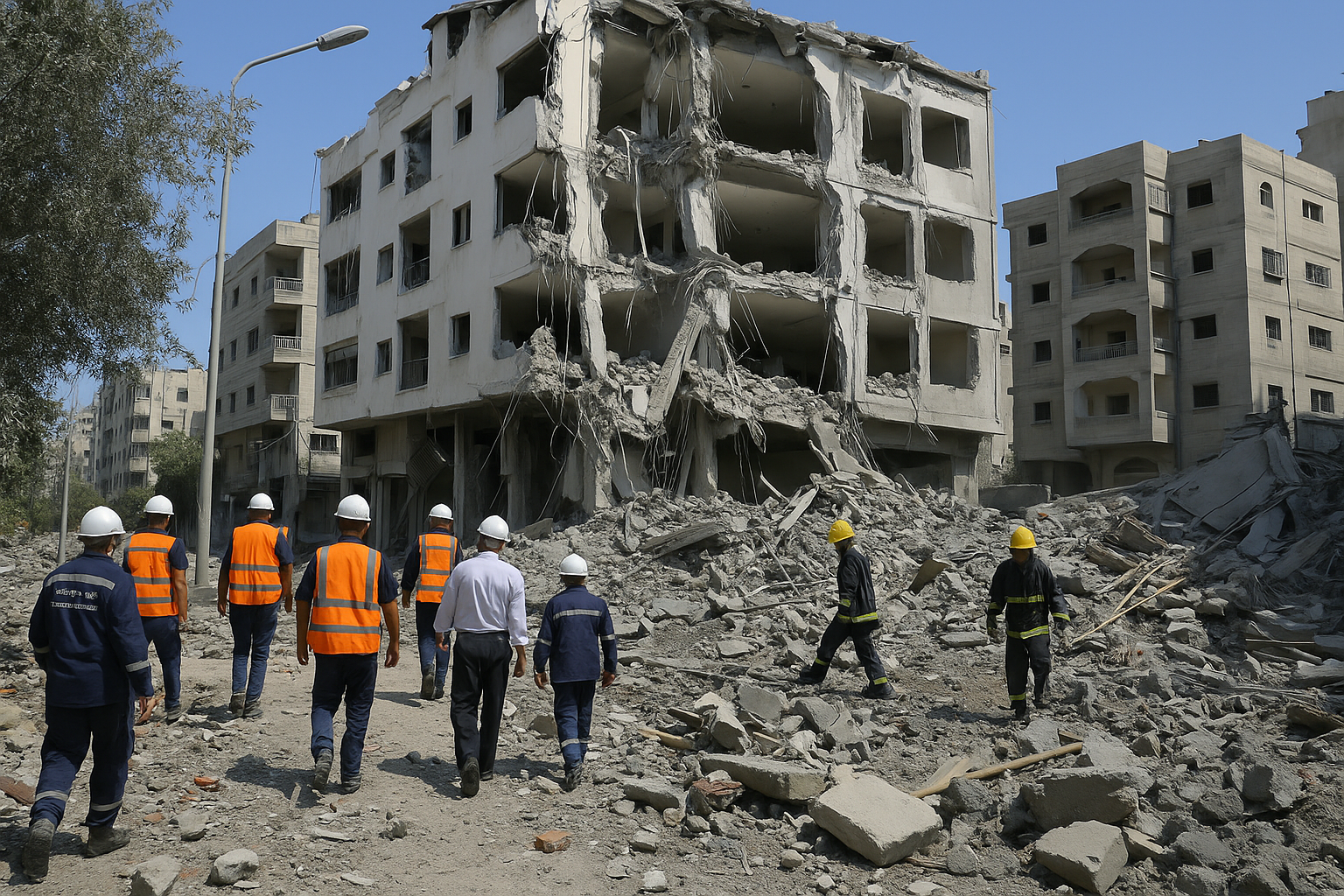The humanitarian crisis in Gaza has deepened dramatically following a single day of intense Israeli air and ground operations that reportedly resulted in the deaths of 106 Palestinians, according to local health officials and international monitors. The deadly escalation marks one of the bloodiest days since the latest wave of conflict began, drawing widespread global condemnation and renewed calls for an immediate ceasefire.
The Day of Violence: What Happened?
Intensified Military Campaign
On what has been described by witnesses as a “relentless day of bombardment,” Israeli forces launched a series of airstrikes and ground raids across multiple neighborhoods in Gaza. Targets reportedly included residential areas, suspected militant hideouts, and infrastructure locations.
High Civilian Casualties
According to Gaza’s Health Ministry, 106 Palestinians were killed in the span of 24 hours, including women, children, and elderly civilians. Emergency services reported being overwhelmed, with many victims buried under rubble and hospitals operating beyond capacity.
Israel’s military claimed that many of the strikes were aimed at neutralizing Hamas operatives and infrastructure, but rights groups and journalists on the ground argue that the scale of destruction points to indiscriminate or disproportionate use of force.
Israel’s Stance
Defense Justification
The Israel Defense Forces (IDF) stated that their actions were in direct response to ongoing rocket fire from Gaza into Israeli territory. In a press briefing, an IDF spokesperson said:
“Every strike was carefully planned to eliminate security threats. We regret civilian casualties but place responsibility on Hamas for operating from within populated areas.”
Ongoing Operations
Israeli officials confirmed that military operations will continue until their objectives—mainly the dismantling of Hamas’ capabilities—are achieved. No indication has been given of a ceasefire or pause in hostilities.
Humanitarian Situation in Gaza
Worsening Crisis
With Gaza already under a suffocating blockade and reeling from weeks of bombardment, the situation is now described as “catastrophic” by the United Nations. Over 2 million residents are facing severe shortages of food, clean water, electricity, and medical supplies.
Hospitals Under Siege
Medical facilities are running on dwindling fuel supplies and are overwhelmed by the volume of wounded civilians. The World Health Organization (WHO) has called for urgent international intervention to prevent total healthcare collapse.
International Response
Global Condemnation
The mass killing has prompted sharp condemnation from various countries and international bodies:
- United Nations: Secretary-General António Guterres called for an immediate humanitarian ceasefire and urged all parties to protect civilians.
- European Union: The EU demanded a thorough investigation into the high civilian death toll and stressed the need for restraint.
- Arab League: Issued a strong rebuke, accusing Israel of committing war crimes and urging international courts to act.
United States Reaction
While the U.S. reaffirmed Israel’s right to self-defense, several lawmakers expressed concern over the humanitarian toll. A growing number of American politicians are urging the Biden administration to take a stronger stance to pressure for de-escalation.
Calls for Accountability
War Crime Allegations
Human rights organizations such as Amnesty International and Human Rights Watch are collecting evidence to assess whether the latest strikes could constitute violations of international humanitarian law, including possible war crimes.
Demands for Investigations
There are increasing calls for the International Criminal Court (ICC) to investigate the recent surge in deaths and to hold accountable any parties found responsible for targeting civilians.
Voices from the Ground
Eyewitnesses in Gaza describe the bombardment as unrelenting and terrifying.
“It was like the sky was on fire. We couldn’t run, we couldn’t hide. The children were screaming all night,” said one survivor from Rafah, where several homes were flattened.
Relief workers report that the number of displaced persons continues to grow, with thousands now seeking shelter in makeshift camps or crowded UN facilities.
Conclusion
The reported killing of 106 Palestinians in a single day has sent shockwaves across the globe, underlining the brutal human cost of the conflict in Gaza. As airstrikes continue and humanitarian conditions deteriorate, the calls for accountability, restraint, and peace grow louder. The world watches as Gaza bleeds—and the urgency for a diplomatic and humane resolution has never been more critical.
At Least 13 Dead And Over 130 Injured In Russian Missile And Drone Strike On Kyiv. –
FAQs
Q1: What triggered the latest round of violence?
A: The current escalation stems from ongoing tensions between Israel and Hamas, including rocket attacks on Israel and Israeli military operations in Gaza.
Q2: Who are the victims of the 106 reported deaths?
A: According to Gaza’s Health Ministry, the victims include men, women, children, and the elderly. Israel disputes some casualty figures, citing militant targets.
Q3: Is there any chance of a ceasefire soon?
A: As of now, there is no confirmed plan for a ceasefire. Diplomatic efforts are ongoing, but military operations continue on both sides.
Q4: How is the international community reacting?
A: Many countries and organizations are calling for an immediate ceasefire and investigations into potential human rights violations.
Q5: Could Israel be held accountable for civilian deaths?
A: If international investigations determine that war crimes were committed, Israel could face legal consequences under international law, though such processes are complex and politically sensitive.
